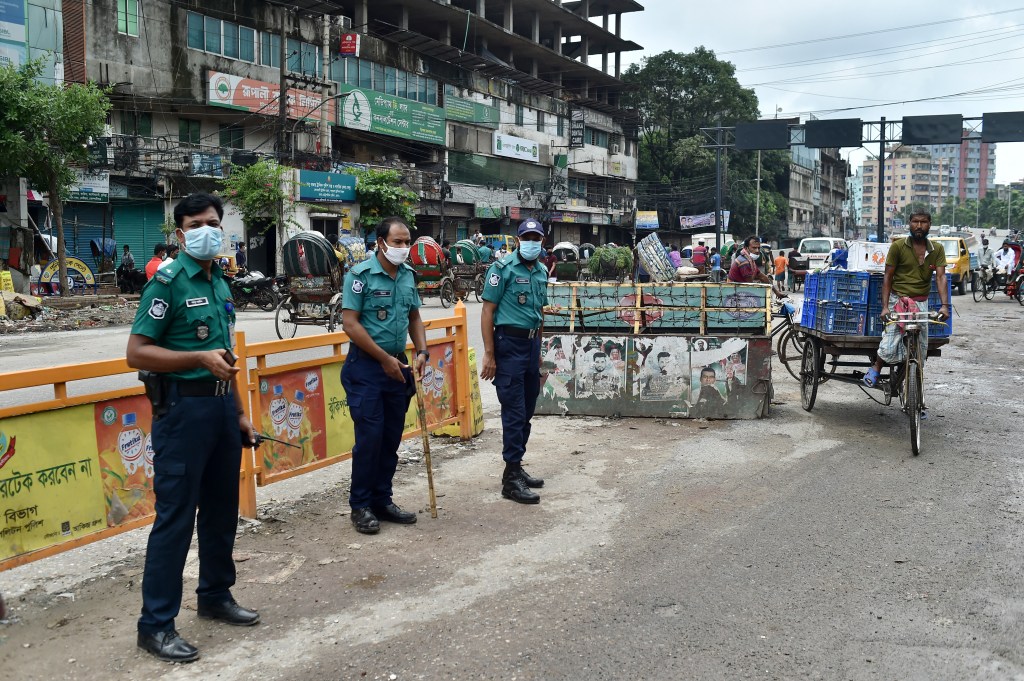Washington, D.C., September 28, 2021 — Bangladesh authorities must immediately drop their investigations into the bank accounts of 12 members of the press and commit to allowing the media to operate freely and independently, the Committee to Protect Journalists said today.
On August 11, the Bangladesh Financial Intelligence Unit, a government agency responsible for investigating money laundering and terrorist financing, ordered all scheduled banks to provide details of any accounts associated with Rozina Islam, a senior correspondent for the daily newspaper Prothom Alo, according to news reports and a person familiar with the case, who spoke to CPJ on the condition of anonymity, citing fear of reprisal. Islam is under investigation for allegedly photographing documents at the country’s Health Ministry without permission.
“Scheduled banks” refer to the 61 banks that are controlled and supervised by the government-owned Central Bank of Bangladesh.
Separately, on September 16, the Bangladesh Financial Intelligence Unit ordered banks to provide such information for an additional 11 journalists, according to various news reports and Muhammad Abdullah, city editor of The Daily Amardesh and president of a group within the Bangladesh Federal Union of Journalists, who spoke with CPJ via messaging app. The 11 journalists named in the September 16 order are also all executive members of several different journalist trade organizations, according to those news reports.
Authorities have not disclosed any reason for the order targeting those journalists, according to Abdullah, who said the reason behind the probe remains unclear.
“The Bangladesh Financial Intelligence Unit’s investigation of the bank accounts belonging to a dozen prominent journalists looks suspiciously like selective law enforcement aimed at intimidating the independent press,” said Steven Butler, CPJ’s Asia program coordinator. “Authorities should immediately drop these investigations, cease harassing journalists, and commit to allowing the media to operate openly and freely.”
According to the news reports and Abdullah, the 11 journalists are:
- Farida Yasmin, senior subeditor of the privately owned Bengali-language newspaper The Daily Ittefaq and president of the National Press Club of Bangladesh
- Elias Khan, special correspondent with the privately owned news outlet The Daily Amardesh—which has been prevented from publishing a print edition since 2013 and whose website was blocked domestically in 2020—and general secretary of the National Press Club of Bangladesh
- Kader Gani Chowdhury, senior reporter with The Daily Amardesh and president of a group within the Dhaka Union of Journalists
- Muhammad Abdullah, city editor of The Daily Amardesh and president of a group within the Bangladesh Federal Union of Journalists
- Mohammad Shahidul Islam, subeditor of the privately owned Bengali-language daily newspaper The Daily Sangram and general secretary of a group within the Dhaka Union of Journalists
- Sajjad Alam Khan Tapu, business editor of the privately owned news channel Jamuna TV and president of a group within the Dhaka Union of Journalists
- Nurul Amin Rokon, news editor of the privately owned Bengali-language daily newspaper Daily Asia Bani and secretary general of a group within the Bangladesh Federal Union of Journalists
- Molla Jalal, editor of the privately owned Bengali-language news website NNB and president of a group within the Bangladesh Federal Union of Journalists
- Abdul Majid, special correspondent of the privately owned Bengali-language daily newspaper The Daily Samakal and secretary general of a group within the Bangladesh Federal Union of Journalists
- Mursalin Nomani, senior reporter with the state-owned news agency Bangladesh Sangbad Sangstha and president of Dhaka Reporters Unity, a local journalist training and press freedom group
- Mosiur Rahman Khan, senior reporter with The Daily Samakal and general secretary of Dhaka Reporters Unity
Hasan Mahmud, the minister of information and broadcasting, told reporters at his office that the government can ask anyone for their bank details, and “if someone is transparent, there’s no reason to be worried about it,” according to The Dhaka Tribune.
The person familiar with Islam’s case said the August 11 order stemmed from an ongoing investigation by the Dhaka Metropolitan Police into a complaint filed by the country’s Health Ministry. On May 17, authorities arrested Islam for allegedly taking pictures of official documents at its Dhaka office, as CPJ documented at the time. She was released on bail on May 23, according to reports.
Islam has frequently reported on alleged corruption and mismanagement of the health sector’s COVID-19 response.
The ministry accused Islam of violating Sections 3 and 5 of the Official Secrets Act and Sections 379 and 411 of the penal code; if charged and convicted, she could face up to 14 years in prison or the death penalty, according to those laws.
On September 19, the Chief Metropolitan Magistrate Court in Dhaka rejected Islam’s request for the return of her two mobile phones and press identification card, which were seized during her arrest, and her passport, which was seized as a condition of her release on bail, according to news reports and the person familiar with the case.
Health Minister Zahid Malek did not respond to CPJ’s request for comment regarding Islam’s case sent via email.
CPJ emailed Md. Masud Biswas, executive director of the Bangladesh Financial Intelligence Unit; Md. Shafiqul Islam, commissioner of the Dhaka Metropolitan Police; and Ferdousi Shahriar, the deputy chief of mission at the Embassy of Bangladesh in Washington, D.C., for comment on the 12 investigations, but did not receive any replies.
